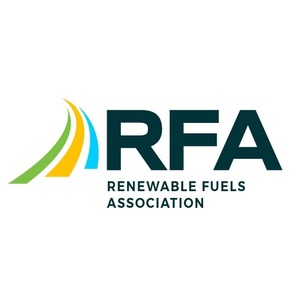RFA to Australia: Choose ethanol, not petroleum reserve

August 15, 2019
BY Renewable Fuels Association
In a letter sent today, the Renewable Fuels Association encouraged Australia’s energy minister to strongly consider U.S. ethanol imports as a cleaner, more affordable alternative to purchasing oil from the U.S. Strategic Petroleum Reserve. According to RFA, opening the Australian market to ethanol imports would be good for the continent’s economy and air quality, and would help spur more rapid development of a domestic biofuels industry.
The letter, from RFA President and CEO Geoff Cooper, cited news reports of Australia’s request for access to the U.S. Strategic Petroleum Reserve “as a hedge against potential oil supply disruptions that appear increasingly likely given the volatile situation in the Strait of Hormuz.” Ethanol is a better option to protect Australian consumers from supply shocks, Cooper said.
Cooper wrote that part of the challenge Australia is facing with renewable fuels growth— biofuels represent less than 2 percent of the country’s liquid transportation fuel supply—is the result of the 5 percent tariff and customs tax of A$0.401 per liter for ethanol imports. “These severe measures have made fuel ethanol imports generally uncompetitive with gasoline and domestically produced ethanol,” Cooper wrote in his letter to Angus Taylor, Australia’s Minister for Energy and Emissions Reduction.
“Removing or at least significantly reducing the tariff and custom tax barriers to imported ethanol does not necessitate a complex negotiation with the U.S. government over our Strategic Petroleum Reserve,” Cooper added. “Nor will it take much time. U.S. ethanol is available today for export to Australia. … U.S. ethanol can provide near-immediate relief to your transportation fuel supply shortage with the added benefit of providing Australia with a tangible demonstration of its commitment to carbon reduction.”
Advertisement
Advertisement
Increasing ethanol use makes more sense than tapping into more petroleum imports, Cooper also wrote, especially since Australia is a seeking to reduce its carbon footprint as a party to the United Nation’s Paris Agreement. When it comes to carbon reduction, ethanol is the clear winner over fossil fuels.
Advertisement
Advertisement
Related Stories
The U.S. Energy Information Administration maintained its forecast for 2025 and 2026 biodiesel, renewable diesel and sustainable aviation fuel (SAF) production in its latest Short-Term Energy Outlook, released July 8.
XCF Global Inc. on July 10 shared its strategic plan to invest close to $1 billion in developing a network of SAF production facilities, expanding its U.S. footprint, and advancing its international growth strategy.
U.S. fuel ethanol capacity fell slightly in April, while biodiesel and renewable diesel capacity held steady, according to data released by the U.S. EIA on June 30. Feedstock consumption was down when compared to the previous month.
XCF Global Inc. on July 8 provided a production update on its flagship New Rise Reno facility, underscoring that the plant has successfully produced SAF, renewable diesel, and renewable naphtha during its initial ramp-up.
The U.S. EPA on July 8 hosted virtual public hearing to gather input on the agency’s recently released proposed rule to set 2026 and 2027 RFS RVOs. Members of the biofuel industry were among those to offer testimony during the event.
Upcoming Events










